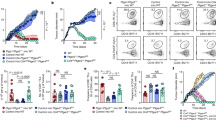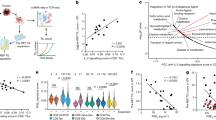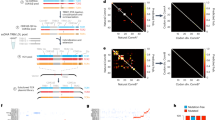Abstract
The transfer of genes coding for tumor antigens (Ags) into Ag-presenting cells is a promising strategy to develop cancer vaccines for patients not limited by major histocompatibility complex restriction. To test whether autologous lymphoblastoid cell lines (LCL) can be used as an alternative to dendritic cells for Ag presentation, we established LCL by spontaneous growth in cyclosporin-containing medium in vitro (SP-LCL). SP-LCL, which have an advantage over B95-8-transfected LCL in that they carry no risk of introducing a new infectious agent when used for vaccination, served as a permanent source for transfection with an episomal Epstein-Barr virus-based expression vector encoding the Ki-ras p21 oncogene carrying a point mutation at codon 12 (muRas) as a model tumor Ag. The ability of muRas-transfected SP-LCL (muRas-LCL) to induce immunoreactivity was determined in vitro. After electroporation with an optimized protocol, muRas-LCL expressed mutated ras peptides for a considerable period of time (at least 8 weeks) on the cell surface. The transfection procedure did not affect the expression of the costimulatory molecules B7.1, intercellular adhesion molecule-1, and leukocyte function associated Ag-3 by SP-LCL. muRas-LCL were able to induce muRas-specific cytotoxic T lymphocytes from three of three healthy donors and one of one patient with pancreatic carcinoma. Our results suggest that the gene transfer of muRas sequences to SP-LCL leads to an endogenous processing of this Ag in the major histocompatibility complex class I pathway and to functional presentation of antigenic peptides to CD8+ T lymphocytes. Autologous SP-LCL can serve as an unlimited renewable source for autologous cellular vaccines and appear to be good candidates as presenters for a wide range of human tumor Ags.
This is a preview of subscription content, access via your institution
Access options
Subscribe to this journal
Receive 12 print issues and online access
$259.00 per year
only $21.58 per issue
Buy this article
- Purchase on Springer Link
- Instant access to full article PDF
Prices may be subject to local taxes which are calculated during checkout
Similar content being viewed by others
Author information
Authors and Affiliations
Additional information
B.K. and C.C. contributed equally to this paper.
Rights and permissions
About this article
Cite this article
Kubuschok, B., Cochlovius, C., Jung, W. et al. Gene-modified spontaneous Epstein-Barr virus-transformed lymphoblastoid cell lines as autologous cancer vaccines: Mutated p21 ras oncogene as a model. Cancer Gene Ther 7, 1231–1240 (2000). https://doi.org/10.1038/sj.cgt.7700236
Received:
Accepted:
Published:
Issue Date:
DOI: https://doi.org/10.1038/sj.cgt.7700236



